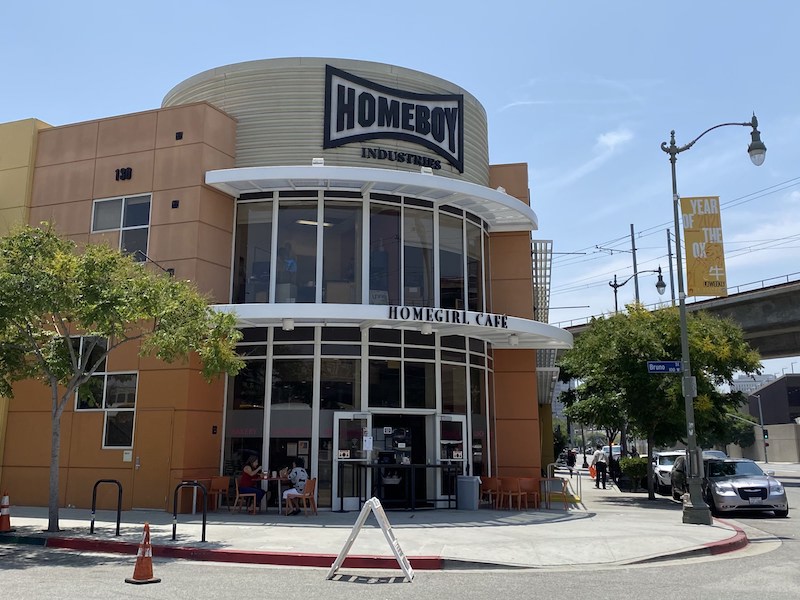Starting Over
A Second Chance: Anecdotes of Women’s Re-entry Journeys
By Ayline Rebollo, Destiny Torres, Hajah Bah, Marlon Dwight, Nicholas Martinez
Meet Nydia Franco
“My kids were in the system… I used to say, you know, if they would ask me When are you going to get your kids back? When are you going to start trying to get your kids back? I would say I didn't want them. I wasn't ready and I wasn't going to put my kids through that,” says Nydia Franco, who overcame many hardships, including deportation, while on her reentry journey.
Nydia Franco was born in Mexico, but raised in Hollywood, California after her parents immigrated to the United States when she was three years old. She recalls living in the urban, largely-Hispanic side of Hollywood and being the wild child of her family. Her sister, as she describes, was very traditional and the complete opposite of her.
Franco became a teenage mother at just 13 years old and had her second child by the age of 15. She lacked support at home. Her mother was deaf and mute, and her father was not very present due to his work. At 19 she became addicted to drugs, catapulting her through a dark path and eventually leading her to losing custody of her children and a series of arrests.
Franco was last arrested more than three years ago and charged with a “211”, or robbery through the use of fear or force. She describes believing that it was, “no biggie,” and that she would be released without having to serve any serious time in prison.
To her shock, she soon learned that she was possibly facing five years in prison. To make matters worse, since she was undocumented, Franco was also at risk of being deported.
She describes being fortunate enough to be released and sent to a rehabilitation center. However, Franco had no initial intention of quitting drugs and fighting for custody of her kids as soon as she completed the program.
“I thought well... I’m just gonna go to rehab to do my conditional release and then I’m gonna go back out in the streets and then go back at it. I’m gonna go get high again and go live my life the way it was before,” Franco said.
When asked about her children, she describes having to sacrifice her custody of them to ensure their wellbeing.
“A lot of people would look at me sideways [and think] ‘What the f---? Those are your kids. You are a mother.’ But I see it, even now, as selfless. It’s selfless to accept that they’re better where they are and not bring them into instability.”
It wasn’t until Franco heard about the Homeboy Industries reentry program during her time in rehab, that she decided to pick herself back up and begin moving forward.
Since joining Homeboy Industries, Franco has regained custody of her children and currently works as a utility worker at Homegirl Cafe, a small establishment near Downtown Los Angeles created by Homeboy Industries to provide employment to formerly incarcerated women.
Franco is also working towards her college degree and is majoring in kinesiology, with plans to graduate in early 2023. She aspires to become a therapist stating that she loves being of service and helping others.
Meet Father Boyle:
Founder of Homeboy Industries
In 1988, Father Gregory Boyle founded Homeboy Industries, a gang rehabilitation and reentry program located in Los Angeles, California. Father Boyle’s vision began in 1986 when he was a pastor at Dolores Mission, an impoverished parish at the time.
After the LAPD declared a gang war in his community, Father Boyle decided to take action.
His efforts soon grew into the largest gang intervention program in the world. To date, a total of 15,000 individuals a year walk through the doors of Homeboy in hopes of reimagining their lives.

Resources
Culture
Home girl
Hardship
Meet Rahsaan Wiley
Rahsaan Wiley’s reentry journey began after being arrested for assault during a conflict between her partner and one of his family members. Yet, rather than spending her time punished behind a prison cell, Wiley was given the opportunity to serve her time in a reentry program where she has since been able to reimagine her future.
Wiley joined the Custody to Community Transitional Reentry Program (CCTRP) four months ago. Under the California Department of Corrections and Rehabilitation division, CCTRP offers individuals the chance to make up for one day of incarceration through one day of participation, with the added possibility of a reduced sentence.
Her experience in the program has been greatly beneficial to helping her deal with difficult situations, loss, and change her perspective of life.
“I lost one of my kids so I need it [the program] for anger management, for my self-esteem. I'm dealing with a whole lot of different things in my life and being able to come here and get this opportunity is helping me to start channeling in these different areas that I need help with.”
Wiley also describes enduring a long history with drugs and maintaining her sobriety throughout the program. Along with the rehabilitation resources offered at CCTRP, she has taken advantage of the family reunification assistance provided in the program which she attributes to helping her become a better mother.
“Even though I have adult children, I’m learning how to be more aware of their thoughts, their feelings and respect them as an individual on an adult level,” she said.
For others who may be going through the same hardships as Wiley, she encourages them to be open-minded about the program and take it into consideration wholeheartedly.
“Work the program, because it works if you work it. If you put effort into it, you’ll get something out of it… because I do everyday.”
Wiley has high hopes for the future and her recovery, expressing that she has aspirations of one day becoming a makeup artist. Yet her biggest goal revolves around her children, and helping them overcome struggles of their own.
“I think it all starts with me. The cycle will break if I just keep moving forward one day at a time and keep getting the things that I need so that I don’t fall backwards.”
